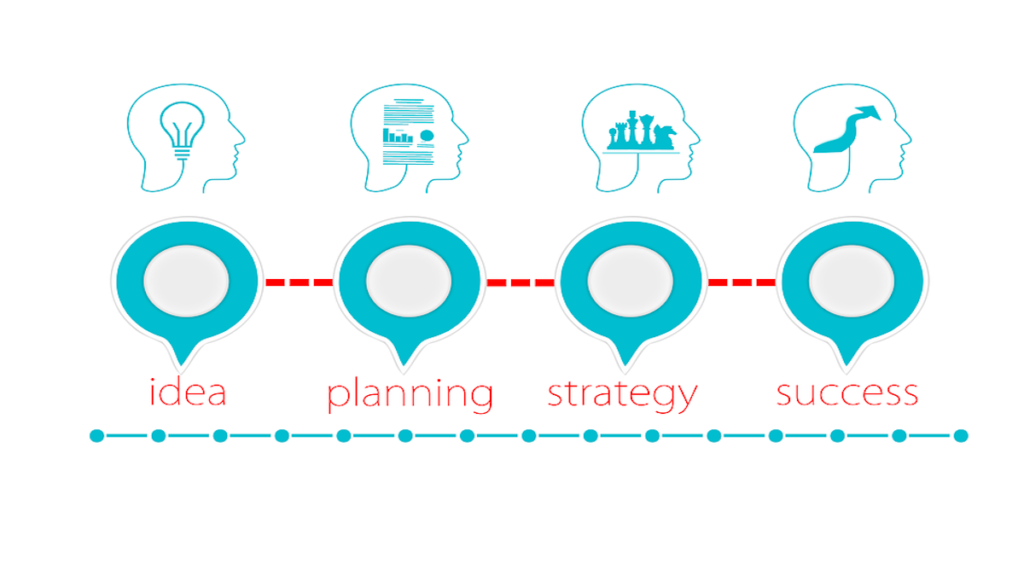Featured image by geralt from Pixabay
Developing a solid financial plan takes more than a little advice from your friend who brags about being in on Bitcoin from the beginning, even if that person is now eyeing Gramercy Park Brownstones and you’re living in a three-bedroom in Bushwick with four roommates. But, it’s fine because you get to sleep in your own bed. Plus, your shared bedroom even has a window!
We’ve all been there. And regardless of where you are financially in life, creating and working with a solid financial plan can help you do more than just stay afloat. Here are five essentials to include in your financial plan to build stability.
5 Must-Haves In Your Financial Plan
1. Goals
Whether we’re talking about weight loss or work, setting SMART goals is key to success in all facets of life, and our finances are no exception.
SMART is a mnemonic acronym for specific, measurable, attainable, realistic, and time-bound. With finances, you likely want to set short-term goals (pay off credit card debt), medium-term goals (save for a down payment on a house), and long-term goals (build up a retirement fund).
It can be overwhelming to set these goals if you feel behind the eight ball, but it’s never too late to start setting financial goals.
RELATED ARTICLE: LONDON ON A BUDGET: PLAN YOUR WEEKEND VISIT
2. Budget
Creating a budget is a huge help to your financial plan. Pat yourself on the back if you already have one. However, are you sticking to it? A budget without stick-to-itiveness is like a car without an engine. It’s not getting you anywhere.
There are as many budgeting strategies as there are non-dairy milk beverage options at your neighborhood coffee shop. That’s to say: a bunch. One of the more popular methods for budgeting is the 50/30/20 rule, which has you put 50% of your income toward needs, 30% toward wants, and 20% toward saving or paying down debt.
Your budget ultimately should align with your financial plan’s goals. The envelope system and the zero-based budget are ideal if you’re looking to curb your spending, while the “pay yourself first” method is a good option if you want to increase your savings.
3. Emergency Fund
Let’s say the engine in your car died unexpectedly, and you’re in a pickle. Replacing a car engine can cost several thousand dollars. Depending on the value of your car, that might not be worth it. Either way, you’re looking at dropping quite a bit of dough to fix the engine or get a new car. This is why your financial plan should have emergency funds.
Most experts recommend saving three to six months’ worth of expenses to keep you afloat. This is so you don’t have to push yourself further into debt in these types of situations. Ideally, you want to save this money in a high-yield savings account to capitalize on interest and have quick and easy access to cash when you need it.
RELATED ARTICLE: FINANCIAL FITNESS: 5 TIPS FOR WOMEN
4. Retirement Fund
You’re not going to work forever. At least, you’re probably hoping you don’t have to work forever. However, you’re still going to need moneys, hence, retirement funds.
Many employers in the private sector offer 401(k) plans with company matches, which allow you to set aside pre-tax income for retirement. Other organizations, like non-profits and public education organizations, offer comparable plans in 403(b)s. If you’re self-employed or do freelance work, you can enroll in an IRA or Roth IRA to put pre-tax income toward investments for retirement.
Generally, it’s advised to replace anywhere from 70% to 90% of current income in the retirement section of your financial plan. But, the more, the better.
5. Insurance
You hate paying for insurance until you need it. But when you do, it can be a real lifesaver. However, you also don’t want to overpay for something you don’t need. So, take a hint from Goldilocks and make sure it’s just right. Whether it’s health, disability, life, auto, or homeowner’s/renter’s insurance, it’s important to protect your financial plans with insurance. You don’t want to let your Bushwick slumlord millionaire take advantage of you anymore than he already has.
RELATED ARTICLE: MARKET RESEARCH STRATEGY: BEST PRACTICES
Casey Musarra
Casey is a reformed sports journalist tackling a new game of financial services writing. Previous bylines include Newsday and Philly.com. Mike Francesa once called her a “great girl.”
